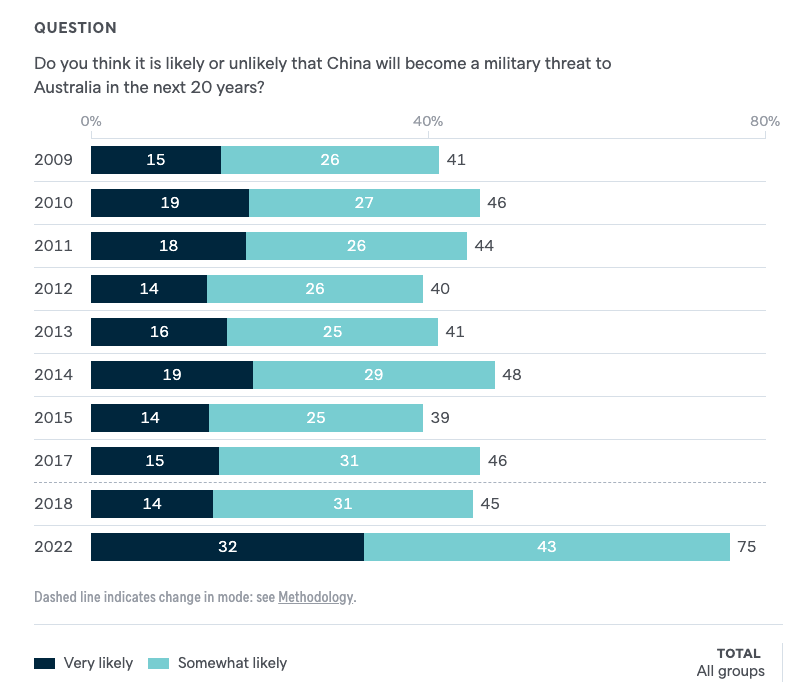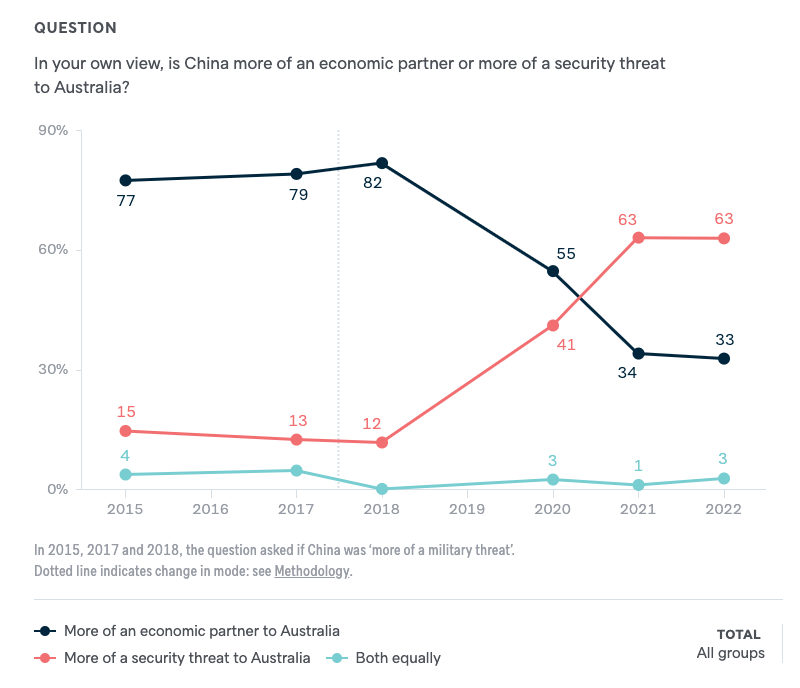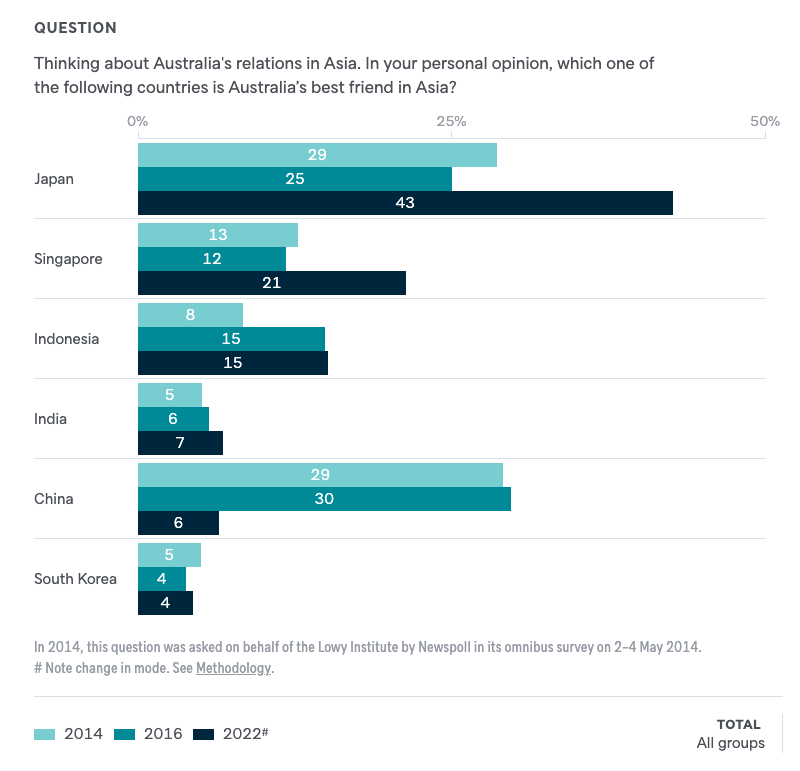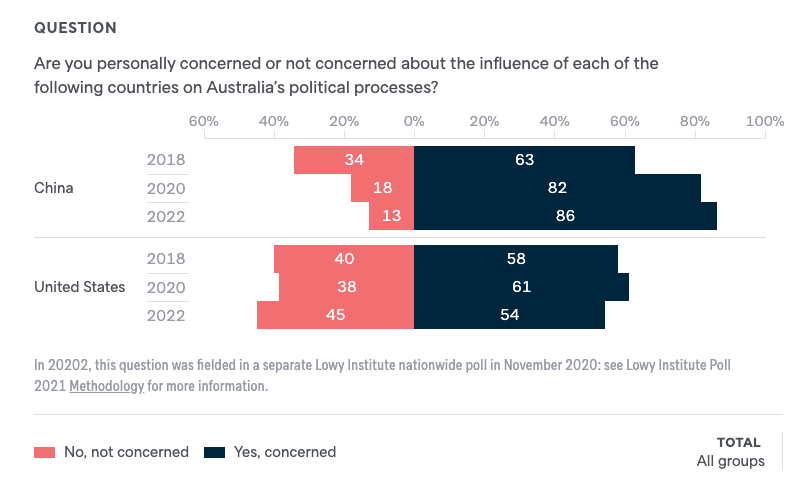Brief #118: Australian views of China in 2022
Last week, the Lowy Institute published the results of its annual polling of Australian public opinion on foreign policy. The results confirm what we know: Australian public opinion on China has soured over the last five years. Today, more Australians see China as a threat than as a friend.
Here are four data points. First, the Australian public has become much more worried about China as a military threat. Between 2009 and 2018, less than half of Australians surveyed thought that China will become a military threat to Australia in the next 20 years. The figure has now jumped to 75 per cent in 2022.

There is little doubt that the beating of the drums of war by Australian political leaders and sensationalist reporting by the Australian media has exacerbated the threat perception of the Australian public.
The reality is that despite China's increasing military capabilities, ambitions and international footprint, direct military confrontation involving China and Australia remains a remote possibility. Indeed, China's challenge to Australian interests is not predominantly military in nature but comes from a combination of sources and tensions. Overhyping the military aspect is counterproductive because it shifts focus and resources away from more probable scenarios, and dumbs down the complexity of Australia's China challenge.
Second, in addition to seeing China as more of a security threat, the Australian public also sees it as less of an economic partner:

From 2015 to 2018, the overwhelming majority of Australians surveyed saw China as more of an economic partner than a security threat to Australia. Today, a majority (63 per cent) see China as more of a security threat, with only one-third seeing China as more of an economic partner.
This shift is jarring, especially given the complementarities of the Chinese and Australian economies, and the continued existence of opportunities for economic partnership between the two countries.
Managing relations with China has become more challenging, yes, that's true. But at the same time, the opportunities (and indeed, the imperatives) of working with the Chinese are still there. Beyond economics, Australia needs to work with China across a whole range of international issues, including climate change, global health and development in the Pacific.
Third, unsurprisingly, most Australians don't see China as "Australia's best friend in Asia". In the 2014 and 2016 surveys, one-third of Australians saw China as that; in 2022, this figure has dropped to a mere six per cent. The negative shift of views towards China corresponds with a positive shift in views towards Japan.

Finally, Australians have become more worried about foreign influence from China and yet less worried about foreign influence from the United States since 2018. In 2022, 86 per cent of Australians surveyed said they were concerned about China's influence on Australia's political processes.

The deterioration of Australian public opinion on China will constrain the options of the Australian government as it navigates the country's most difficult and consequential bilateral relationship.
By Adam Ni
